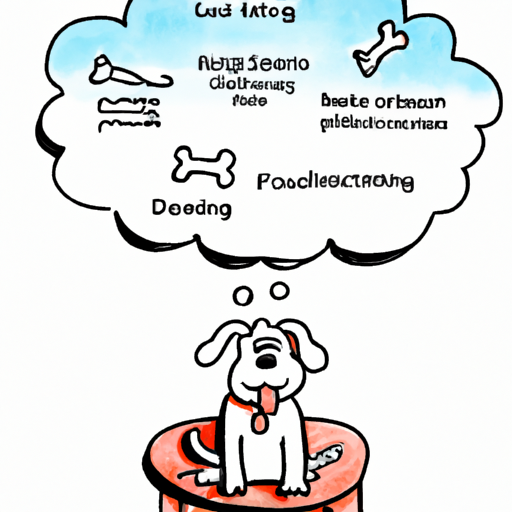Your Role as a Caregiver
As a caregiver, you hold a unique position in your dog’s life. You are the one who feeds them, walks with them, and provides them with love and comfort. You might even find yourself wondering what goes on in their adorable little heads. Understanding what dogs think can help you form a deeper connection with your pet.
- Dogs do think, but not in the same way humans do.
- They perceive the world primarily through their noses.
- Dogs have a sense of time, but it’s different from ours.
Understanding Your Dog’s Behavior
Dogs communicate through a combination of vocal and physical signals. They can express a wide range of emotions, from joy and excitement to fear and aggression.
- Tail wagging: This can indicate happiness, but it can also be a sign of fear or aggression.
- Barking: Dogs bark for many reasons, including alerting you to danger or expressing frustration.
- Whining: This can be a sign of distress or a call for attention.
The Science Behind Dog Cognition
Dogs have been proven to possess cognitive skills similar to a 2-year-old child. They can understand up to 165 words, can count up to five and can even perform simple mathematical calculations.
| Cognitive Skills | Dogs | 2-year-old Child |
|---|---|---|
| Word Understanding | Up to 165 words | 150-300 words |
| Counting | Up to 5 | Up to 10 |
| Simple Calculations | Yes | Yes |
Training Your Dog Effectively
Understanding your dog’s thought process can significantly enhance your training sessions. Dogs are motivated by rewards, so positive reinforcement is a powerful tool.
- Start with basic commands like sit, stay, and come.
- Use treats or toys as rewards.
- Be consistent with your commands and rewards.
- Keep training sessions short and fun.
Building a Strong Bond with Your Dog
Building a strong bond with your dog is all about understanding their needs and communicating effectively. Spend quality time with them, engage in activities they enjoy, and provide plenty of love and affection.
- Regular walks and playtime.
- Training sessions.
- Cuddles and petting.
- Regular grooming.
FAQs
Do dogs think in words?
No, dogs think in sensory images rather than words.
Can dogs understand human emotions?
Yes, dogs can pick up on human emotions and often respond in kind.
Do dogs have a sense of time?
Yes, dogs have a sense of time, but it’s not the same as ours.
Can dogs feel complex emotions like guilt or shame?
The jury is still out on this one, but many experts believe that dogs can feel basic emotions like joy, fear, and anger, but not complex ones like guilt or shame.
What can I do to understand my dog better?
Spend time with your dog, observe their behavior, and try to understand their needs and wants. Regular training and socialization can also help.



